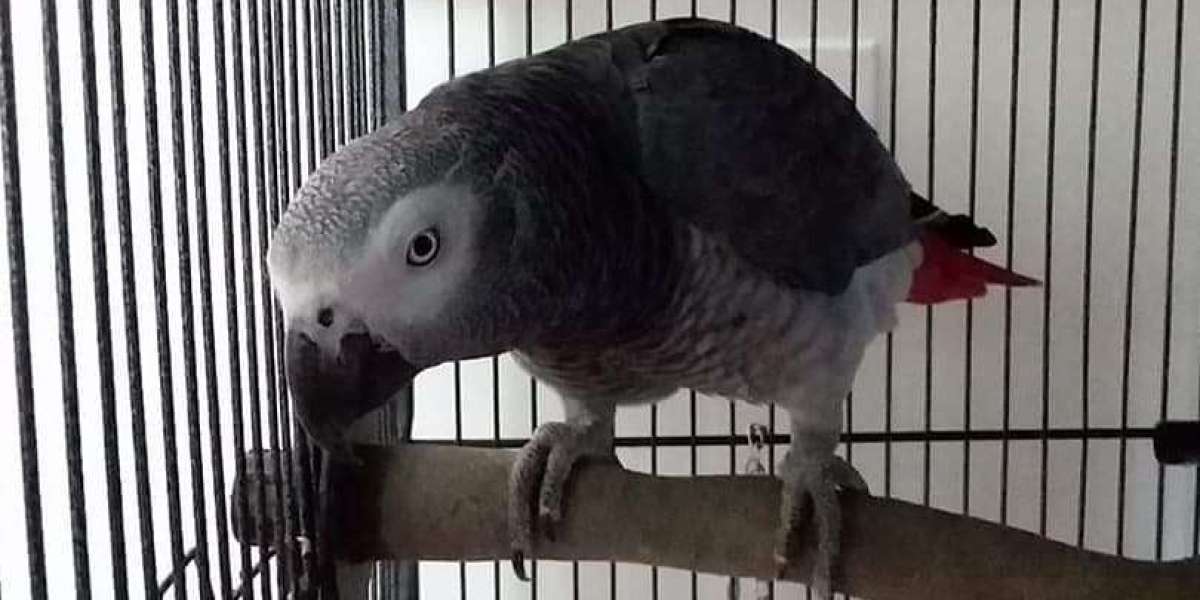African Greys make a wonderful pet bird for bird owners with experience. They are highly intelligent and require lots of time and stimulation.
It may become anxious and destructive if you leave an african gray unattended for a long time. It may also start screeching out in an effort to attract attention.
Cage
African Greys are intelligent birds that need a lot of interaction and attention. They also require a large cage. It can be costly, but they live long and are worth the money. To keep your African Grey safe, make sure the cage you buy is made of stainless steel or powder coated and has adequate bar spacing. You need to be able to clean the cage and access your parrot easily throughout the day. You should also include different toys and activities to the cage of your bird. You will want to provide your bird with various perches within the cage, at different heights, www.charmingafricangreyparrotforsale.com and made of different materials. This will allow them to maintain their claws, so you don't have to trim them often.
It is important to consider the dimensions of your African Grey and the available space within your home when selecting the cage. A minimum size of 3 ft wide and 2 ft deep is recommended. The size of the cage determines the length of time your African Grey will spend in the cage, as well as how many toys can be put inside. It's also an excellent idea to purchase an additional playstand for your African Grey. This will allow you to move the play stand from room to room, and then take your bird along with you throughout the house as needed.
The cage should be equipped with a sliding tray or grid to make cleaning it easier. It is also recommended to choose a cage that has locking mechanisms on all feeders and doors to ensure that your bird cannot escape or get into the cage. You should also look for cages with both horizontal and vertical bars to allow your African Grey to climb more easily.
It is also important to ensure that the cage has enough bars to attach perches, toys and other things. Avoid cages with round sides because they prevent the African Grey from spreading his wings. It is also a good idea to place the cage in a location that is not too busy and in an area that is temperature-controlled. You should also make sure that the cage isn't near drafts, windows or any other places in which your pet can get too cold or too hot.
Food
African Greys are intelligent and social birds who love playing games and music with people. They can be taught to talk and have a very distinctive, often deep voice. They are a wonderful bird for experienced parrot owners. They are not recommended for beginners parrot owners as they can be very vocal and contribute disturbance in the home. They are noisy and will whinge, yell and scream if they are bored or unhappy. The noises can be disruptive to neighbours and family members, in particular those who are not familiar with hearing the sounds of the sounds of a parrot in the home. They can also be destructive and scratch at their feathers and if not properly trained, they may chew on wire and wooden furniture.
It is recommended to choose a large iron cage that is free of rust and chips. It should be at least 36" x 24" and 48". A cage that has large gaps is not suitable for your bird since the bird could get stuck between the bars.
They eat various fruits, vegetables nuts, seeds and seeds. They prefer a diet that is rich in minerals. A diet that is 80% pellets and 20% fresh, high quality foods is highly recommended. Calcium is also important to maintain bone health. A high-quality pellet that has a blend of calcareous vegetables and herbs should provide the calcium needed. Some Greys' carers grow weeds like dandelion flowers leaves, stems and leaves.
The omnivores need an array of fresh, high-quality food items that are nutritionally dense to be healthy. If they are not getting enough nutrients from their diet, they may develop an array of behavioral and health problems. This species of parrots needs regular veterinary checks to detect early signs and to maintain their health at its best. Find a vet who is specialized in exotic animals is a good idea since they are more knowledgeable about their specific needs.
Toys
Due to their natural curiosity and innate intelligence African Greys require lots of attention and interaction. In fact, they require 5 hours of stimulation a day to be healthy and happy. They can get bored easily, and if they are not stimulated, they could resort to destructive behaviors such as bites or feathers. These issues can be resolved with the correct training in the right environment.
To keep your African Grey busy and entertained, you will need to provide a variety of games. The toys must be made of durable materials that can withstand chewing. Ideally, these toys should not contain dangerous metals or sharp objects that could cause injuries. Think about giving them branches that are pesticide-free and non-toxic. This will satisfy their natural desire to play and chew on trees, and also give them a breath of fresh air.
In the wild, African Greys reside in mangrove forests on the coast clearings, woodlands, and clearings in the edges of forests in West and Central Africa. The Timneh subspecies occurs in a smaller region along the western edge of the Ivory Coast through southern Guinea. Both species are considered to be threatened or endangered. The trade in Grey parrots is a major driver of their decline, with the vast majority of these birds captured from the wild, which has significant implications for conservation, animal welfare and biosecurity.
You cannot get an african gray for free but you can save money by purchasing a previously owned bird from breeders. These birds have been socialized and are more used to being handled by humans, which makes them much easier to train. In addition the previous owner is likely to have all the cages, toys and other equipment you require.
If you're planning to purchase an african gray make sure you buy a cage large enough. A cage that is too small will make it difficult for the bird to spread its wings and will restrict its movement. It is also essential to avoid wrought-iron cages coated with lead paint. Lead poisoning is fatal to birds.
Training
African Grey Parrots are intelligent and talkative birds. They are excellent pets for those who are able to spend the time and energy they need. However, they are not for people who are new to bird ownership because they require more care and mental stimulation than other birds. If they don't receive enough interaction and toys they could become destructive and depressed. They are also very expensive to keep, and may be afflicted by a variety of health issues. If you're thinking of buying one of these birds, be sure to research all the costs involved in the ownership of a parrot prior to making a commitment.
Many African Greys can learn to talk, although it requires a lot of effort and dedication to teach them. Some African Greys are able to speak much earlier than a year. They can mimic whistles and sounds and human words and phrases. These birds are often very vocal, particularly early in the morning and late in the evening. In the wild they use these calls to communicate between the members of the flock.
The best method to train a Grey is to begin early and expose it to different situations and people as soon as you can. A cage that is free of chips and rust is crucial. If you plan to train your African Grey, it is best to stick to short training sessions that are positive in nature and always end on a good note. This could mean two five-minute training sessions each day.
You should also teach your parrot the proper place to dispose of its food or waste. This will keep your home tidy and avoid health issues. Place newspapers in the cage, on play stands or perches. After a few weeks, the Grey will start to prefer these surfaces over its own.
 African Greys are known to live for up to fifty years. You must be aware of this before buying one. They require lots of care and affection, and they can be extremely expensive to maintain. They are also known as powder birds and can produce a lot of dust in your home. This can be a problem for people suffering from asthma or allergies.
African Greys are known to live for up to fifty years. You must be aware of this before buying one. They require lots of care and affection, and they can be extremely expensive to maintain. They are also known as powder birds and can produce a lot of dust in your home. This can be a problem for people suffering from asthma or allergies.








